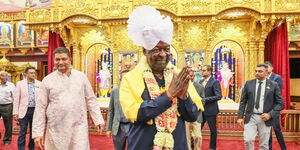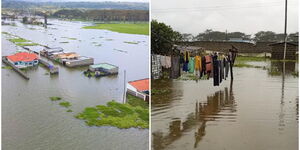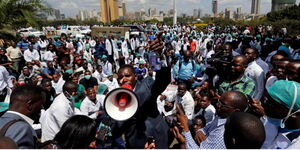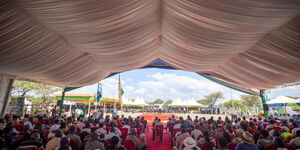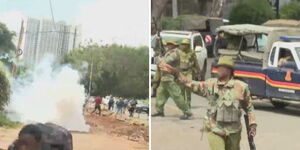In August 2020, President Uhuru Kenyatta directed Nairobi Metropolitan Services (NMS) to construct 24 hospitals in informal settlements in abid to make healthcare services more accessible.
Out of the these, 19 would be constructed at a cost of Ksh70 million each while the remaining five would be for Ksh300 million. The deadline of the project was set at April 30, 2022, according to Health CS Mutahi Kagwe.
However, two months later, all is not well. A myriad of concerns have been raised by Nairobi residents who have complained of poor services.
A report by Citizen TV dubbed NMS Health Account delved deeper into the gravity of the matter indicating that most of the hospitals lacked key supplies, including medicines.
Further, patients had to deal with long queues and expensive drugs in order to access the vital health services.
Responding to the reports, NMS boss General Mohamed Badi attributed the reason for the inadequate supply of medical facilities to a huge bill that the entity inherited from the county government. He noted that NMS had to offset Ksh195 million owned to Kenya Medical Supplies Authority- KEMSA , leaving Ksh100 million as pending bills.
"We inherited a huge bill and we have just finished paying KEMSA last week. Some of the medical suppliers who were supplying some of the county hospitals before NMS came have still not been paid to date."
"We have formed a committee to look at the pending bills that are facing us and it is not a small amount. Some of these companies have gone bankrupt because of these huge bills. These were the mistakes formed by the former county government. Health was a transferred function so it is our problem to solve it."
Badi noted that when he took over office, almost 47 percent of 4 million Nairobi residents sought medical services from the Kenyatta National Hospital.
He however pointed out that the situation has changed due to the construction of NMS hospitals, which essentially cut the number of outpatient visits to KNH by 60 percent.
"To decongest KNH, we used specialists in Level 5 hospitals to attend to level 3 hospitals in order to do minor surgeries. We do it on rotational basis."
Badi noted that despite employing over 2,000 workers to the hospitals, human resources is still minimal to keep up with the flow of patients.
"Most of these Level 2 and 3 hospitals were supposed to operate during the day only. However, the public reached out to President Uhuru Kenyatta urging to get services at night, which he directed so. We're struggling to get new medical employees to run the facilities on a 24 hour basis," Badi stated.




